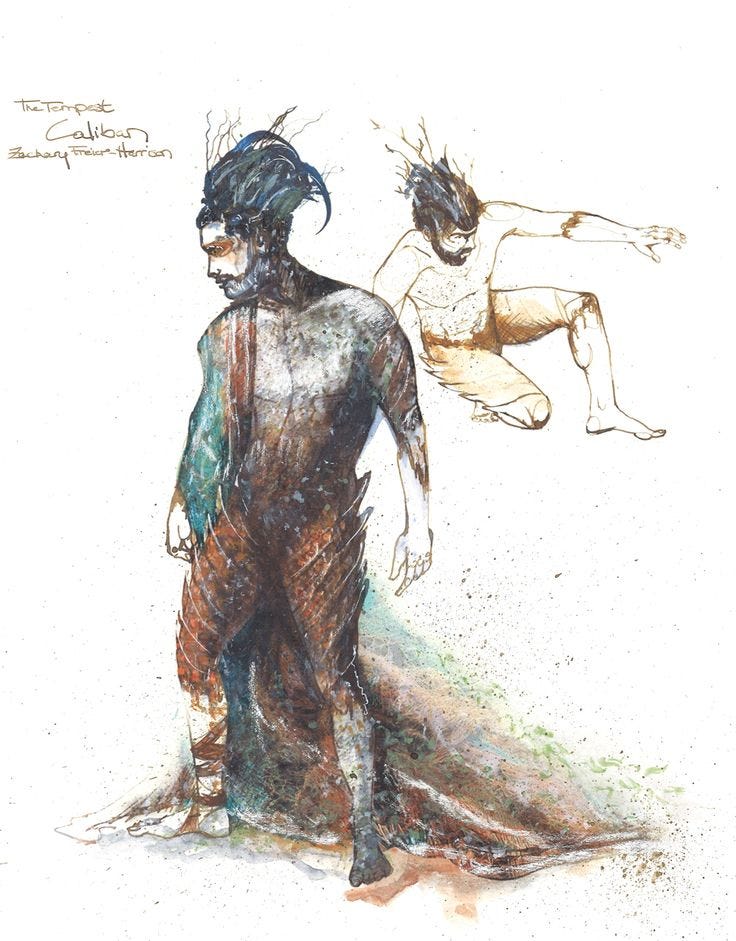We had a small dusting of snow overnight.
I’m working on the next piece for the Tools for Natural Fitness—one in which I share several particular pieces of equipment and strategies that might be useful to you pursuing the natural method. Think fitness for Lawrence of Arabia, Teddy Roosevelt, and Tim O’Brien.
But as that piece is not ready yet and we have a fresh blanket of snow, I thought I’d share a poem that I published almost ten years ago in a journal called Arion. Pretty much the same right?
If you’re familiar with Shakespeare’s play The Tempest you’ll likely remember the character Caliban. Caliban can elicit complicated responses: he is an orphan of unknown paternity and his mother was a witch banished from civilization. For most of his life he has lived alone on an island that seems in many ways like a natural paradise. He might be magic; is sometimes malicious; is a would-be rapist. He also has some of the most beautiful lines of poetry in the play, lines which threaten to make him surprisingly sympathetic.
Sometimes a thousand twangling instruments Will hum about mine ears; and sometime voices That, if I then had waked after long sleep, Will make me sleep again; and then in dreaming, The clouds me thought would open, and show riches Ready to drop upon me, that when I waked I cried to dream again.
Caliban in his natural paradise seems to occupy a world that is somehow porous with a dream world beyond the immediate physical reality surrounding him. We might wish that southern Michigan in February was any of the above: a natural paradise, a dream world, or even just porous…so that the standing water might drain off a bit.
But actually, a night snow does entirely change the world outside.
Caliban in Snow
Even when we know
it’s coming, the night snow
surprises. The wind-break
becomes a white-washed
picket and the earth pushes back
in edges and ripples across the crust.
The leaning tractor doesn’t
change, just disappears
in white—And I think of
waking up like an injury.
But when I sleep again,
these dreaming continents
tumble into place
making silence where
they touch our fields.
And through the hard black,
first one flake, and then
wild cities of archangelic white
topple silently from the sky all night. Arion: A Journal of Humanities and the Classics. Vol. 23, No. 2, Fall 2015.




